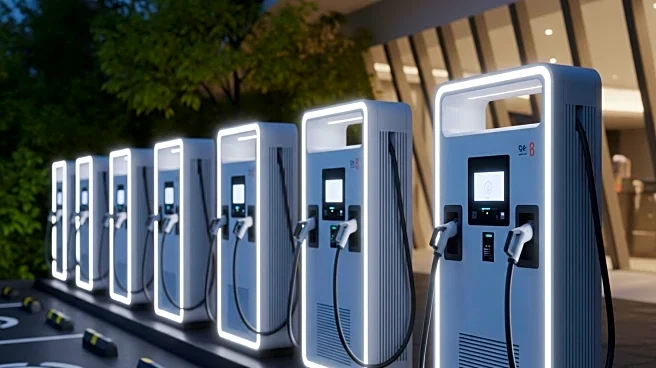What's Happening?
Hyundai Motor America's battery plant in Georgia is experiencing a delay of two to three months following a federal immigration raid that detained over 300 South Korean workers. The raid, conducted by Homeland Security Investigations, targeted the Hyundai-LG worksite in Ellabell, Georgia, amid concerns over workplace safety issues that have resulted in three deaths over the past two years. The investigation, which began in March, coincided with a series of fatal workplace accidents, raising questions about the presence of undocumented workers and their ability to report safety issues without fear of deportation. The raid has led to uncertainty about the future of the project and similar investments in Georgia.
Why It's Important?
The delay in the completion of Hyundai's battery plant is significant as it impacts the broader economic relationship between the United States and South Korea. The plant is part of a $7.6 billion factory complex for battery-powered models, and its delay could affect Hyundai's production timelines and investment plans. The incident also highlights the challenges faced by foreign companies operating in the U.S., particularly regarding immigration policies and workplace safety standards. The situation could potentially deter future investments from South Korea, which has pledged substantial investments in the U.S. as part of a broader economic strategy.
What's Next?
Hyundai's CEO, José Muñoz, has indicated that the company will need to find replacements for the detained workers, which could further delay the project. The situation may prompt discussions between U.S. and South Korean officials to address the concerns raised by the raid and its impact on bilateral trade and investment. Additionally, there may be increased scrutiny on workplace safety practices at foreign-operated sites in the U.S., potentially leading to regulatory changes or increased oversight.
Beyond the Headlines
The raid and subsequent delays underscore the complex interplay between immigration enforcement and economic development. It raises ethical questions about the treatment of foreign workers and the responsibilities of multinational corporations in ensuring safe working conditions. The incident also reflects broader tensions in U.S. immigration policy, particularly under President Trump's administration, which has taken a hardline stance on immigration issues.









